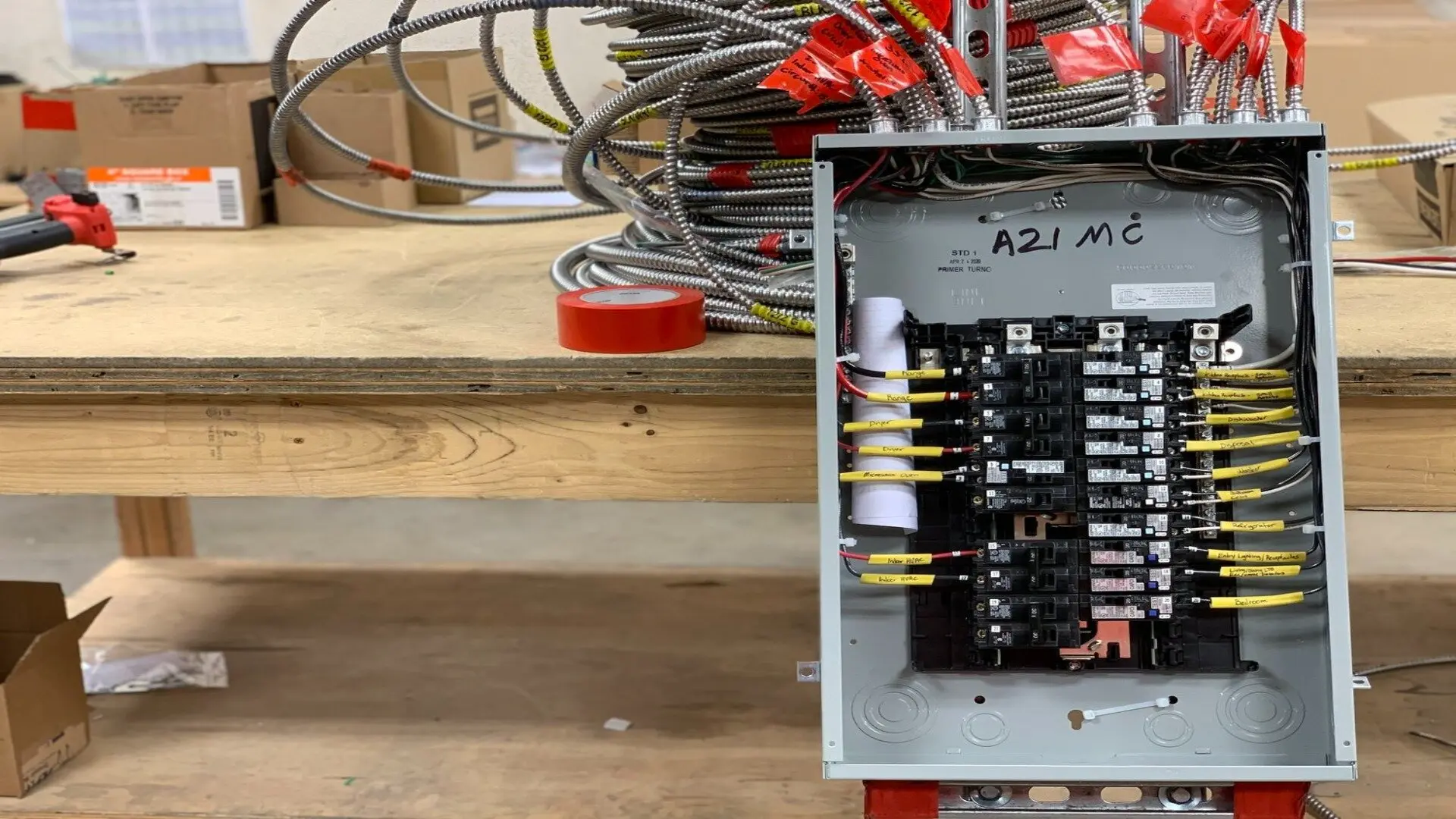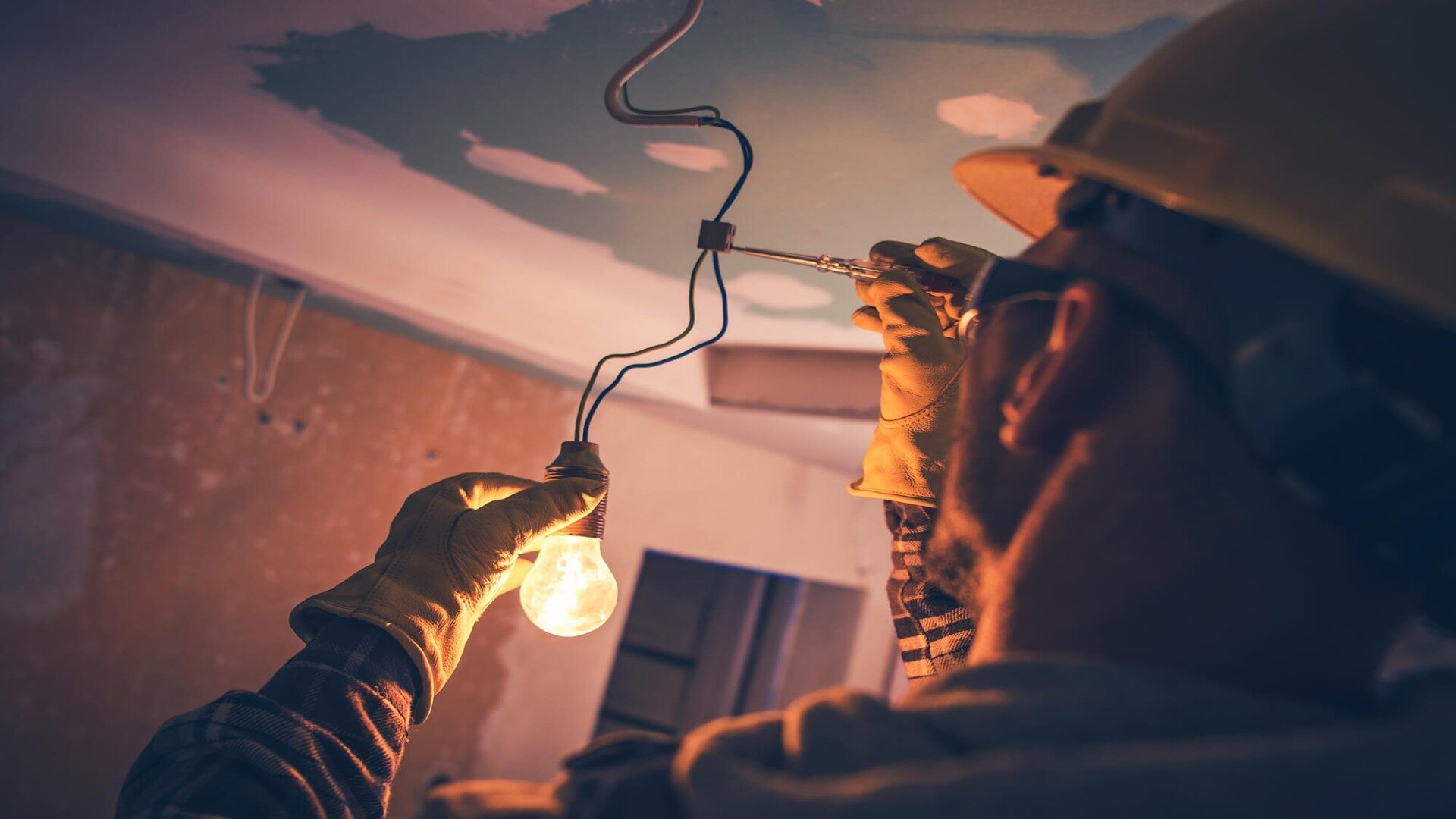Dealing with an electrical emergency can be scary and dangerous for homeowners if not appropriately handled. Certain electrical issues, like shorts, surges, and overloads, can present severe electrical fires and shock hazards if not addressed quickly and correctly. Attempting DIY repairs without proper training also risks making problems worse or causing injury.
At Enersol, our Residential Electrician Gold Coast - This article will cover identifying the most common electrical emergencies in a home. Licensed electricians will provide tips on responding appropriately to these urgent issues as homeowners.
We’ll dive into key safety measures like knowing when to turn off your power supply, spotting warning signs of electrical trouble, and understanding when it’s time to bring in a pro. Learn more about residential wiring guide. With these essential tips on handling electrical emergencies, you can stay calm, cut down risks, and lessen possible damage in tricky situations. Our main goal is to show you how to safely deal with common electrical crises at home.
Most Common Electrical Emergencies
Home electrical systems are complex and sensitive to wiring damage, moisture, pests, and overload. Several common electrical emergencies can present safety risks if not addressed properly. Recognising and responding appropriately to these electrical hazards can help minimise fire risks, equipment damage, and injury.

Short circuits
A short circuit occurs when electricity flows along an unintended shortcut path, often sparked by faulty wiring or damaged insulation. Shorts can cause circuit breakers to trip, smoke, sparks, and heat damage.
Signs of a shortage include frequent circuit breaker failure or tripping, flickering lights, and buzzing from the electrical outlet. Isolate a short by turning off the main breaker. Call an electrician to inspect and repair damaged wiring. Never handle exposed wires yourself.
Power surges
Power surges, those sudden voltage spikes, can wreak havoc on your electronics and appliances. They typically come from things like lightning strikes or dodgy wiring. If you notice fried gadgets or flickering lights after a storm, there might be a surge to blame. Be sure to take precautions to safeguard your devices.
To be prepared during a power outage, it’s important to keep essential supplies handy, such as flashlights, batteries, food and water. Make sure also to have a well-stocked first aid kit and an emergency plan for your family in case you need to evacuate. Unplug sensitive devices during surges. Use surge protectors to absorb excess voltage. Have an electrician inspect the electrical system if problems persist.
Overloaded circuits
When too many devices put a strain on a circuit, you end up with overloaded circuits. You’ll notice this when circuit breakers trip, lights dim, or some outlets stop working. Start by pinpointing those high-wattage appliances that might be causing the trouble and unplug a few. It’s also wise to spread out your appliances across different circuits or even consider upgrading your electrical panel if this becomes a frequent issue.
Faulty wiring
Outdated or damaged wiring can cause an electrical power failure. Warning signs are warm outlets, buzzing sounds, and flickering lights. Faulty wiring poses serious fire risks. Immediately shut off power to affected areas. Call a licensed electrician to inspect and repair damaged wiring right away.
Electrical ground faults
Ground faults happen when electricity escapes a circuit and flows into the ground. Damaged cords and appliances often cause the issue. Shut off power to the faulty circuit. Have an electrician detect the ground fault location and make repairs.
Arc faults
Arc faults occur when electricity jumps across a gap between wires. This causes dangerous sparks and is a fire hazard. If you notice sparking outlets or switches, shut off the main breaker. Hire a local electrician to locate and fix damaged wiring causing arcing.
Electrical shocks or electrocution
An electric shock can occur when a person becomes part of an electrical circuit. Any exposed electrical wiring can cause severe injury or death.
Immediately shut off power if safe. Do not attempt to disconnect the person being shocked. Use a non-conductive object to separate them from the power source. Seek medical attention for any significant electrical burns or wounds.
Fallen Power Lines
A downed power line can fall for many reasons, though the most common cause is impact with the pole (e.g. a car crashes into it) or weather (where extreme winds result in lines falling to the ground and power outages). It’s well communicated through media sources, such as television advertisements, that a fallen power line is dangerous to us.
When fallen, all lines should be considered alive, even if visible evidence suggests otherwise. We advise you to stay as far away from grounded lines as possible, including objects in contact with these electrical wires and abnormally low-hanging power lines.
Emergency Preparedness
Preparing before experiencing a typical electrical emergency can help minimise electrical safety risks and prevent panic. There are several steps homeowners can take to get ready for potential electrical issues.
First, ensure the electrical system is up-to-date and all wiring is in good condition by having a licensed electrician do a safety inspection annually. Keep an updated map of your home’s electrical circuits to identify problem areas quickly.

In case a minor electrical fire sparks up, make sure your home is fitted with smoke alarms and keep a fire extinguisher ready. It’s also smart to have the number of a reliable 24/7 emergency electrician at your fingertips. Craft a response plan covering essentials like accessing the breaker box and having an evacuation route planned out.
Know how to manually turn off the power, gas, and water supply lines in an emergency. Taking preventative and preparatory measures allows homeowners to act swiftly and cautiously when faced with an urgent electrical situation.
Stay Safe When Electrical Danger Strikes
Dealing with urgent electrical situations in your home can seem daunting if you need to learn how to respond safely and effectively. Recognising common types of electrical emergencies and taking appropriate action as a homeowner is critical to avoiding injury, minimising fire risks, and preventing extensive property damage.
Stick to basic safety steps like switching off the power when necessary, unplugging appliances from affected circuits, and getting a licensed electrician on-site promptly for problems like dodgy wiring, ground faults, or recurring power surges. These actions are vital to keeping your home safe.
If you ever face an electrical emergency in the Gold Coast area, the expert team at Enersol Electrical is available 24/7 to provide prompt and reliable emergency services. Their licensed electricians can quickly diagnose issues and make needed repairs to get your home’s electrical system safely up and running again.
Don’t hesitate to contact us immediately for emergency services, urgent electrical response, or preventative inspections. You can confidently handle electrical emergencies with the proper precautions and professional support.
Frequently Asked Questions About Electrical Emergencies
What common types of electrical emergencies can occur in the home?
Electrical emergencies can encompass shocks, fires from arcs or shorts, power supply hiccups like outages, fallen power lines outside your home, overloaded circuits, and malfunctioning wiring. Recognising these types of electrical troubles is crucial.
What should I do if someone is experiencing an electrical shock?
Electrical shocks can cause severe injury or death. Do not directly touch the person being shocked. Use a non-conductive object to separate them from the power source. Shut off power if safe. Contact emergency services immediately for medical care.
How can I prepare my home to handle electrical emergencies safely?
Install smoke alarms and fire extinguishers in case an electrical fire starts. Keep maps of electrical circuits and emergency electrician numbers handy. Learn how to turn off the power supply and gas manually if needed. Annual inspections can catch issues early.
What precautions should I take if fallen power lines are outside from a storm?
You should consider all fallen power lines energised and an electrical hazard. Keep at least 8 metres away and prevent others from approaching. Contact emergency services immediately to handle the unsafe electrical wires properly.
What should I do if an electrical outlet sparks and poses a fire risk?
Sparking outlets indicate dangerous arcing. Immediately shut off the power supply to the affected circuit. Never attempt repairs on your own. Contacting an electrician is vital to fixing the electrical hazard safely. Explore our Residential Electrician Gold Coast to learn more.